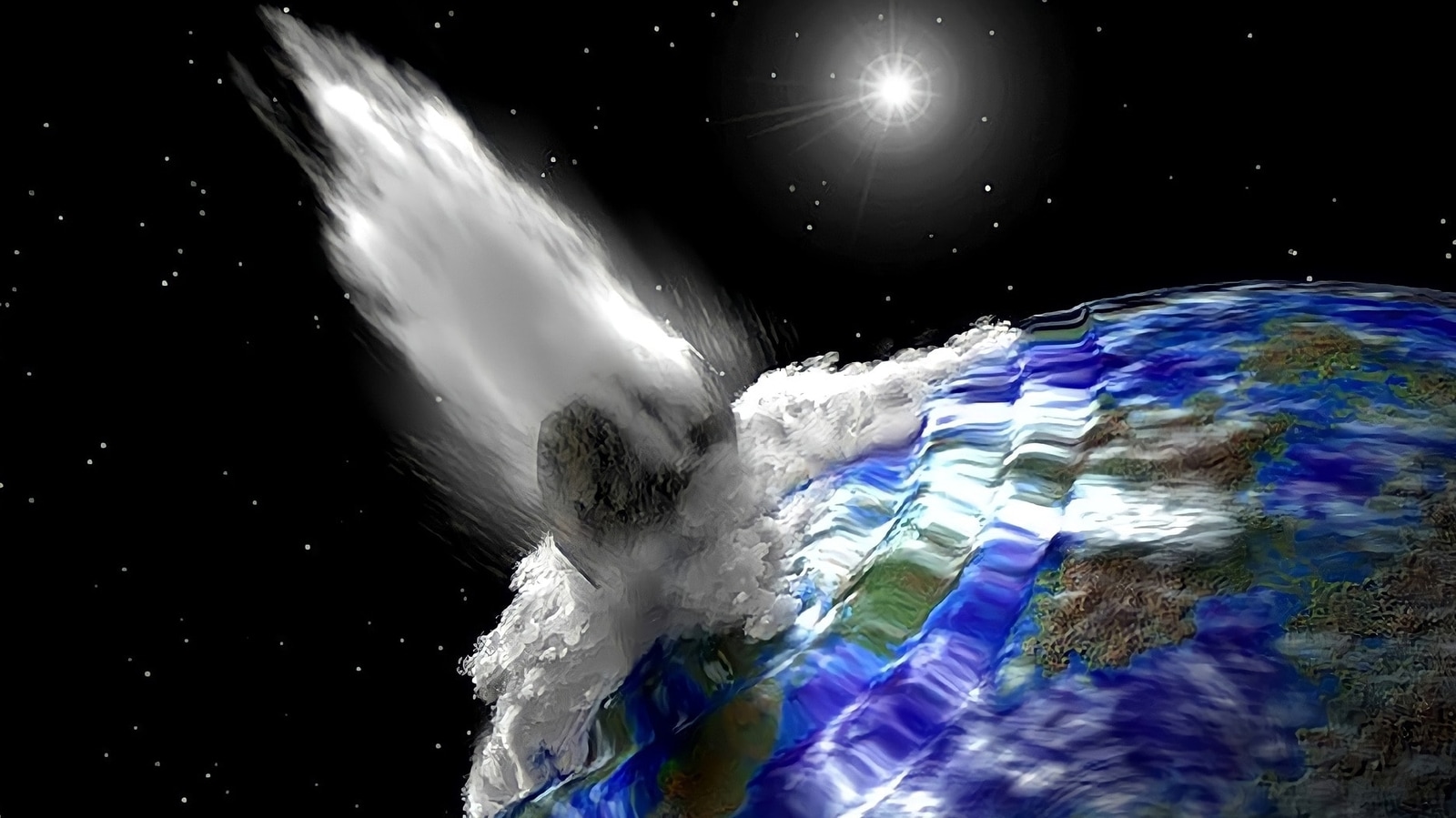NASA: Almost 2 km wide ‘Potentially Hazardous’ asteroid approaching Earth; Know the risks
In just two days, this almost two kilometers wide potentially hazardous asteroid will come dangerously close to the Earth, says NASA. Will it hit? Find out
NASA: So far, the year 2022 has been filled with astronomical surprises. We ended the previous month with a total solar eclipse and we close the month of May with a gigantic asteroid making a close approach towards the Earth. The situation is concerning as the asteroid is 1.8-kilometers wide. For a visual reference, that is more than twice the size of Burj Khalifa, the tallest building in the world. And if it were to deviate towards our planet, it would easily cause a global disaster. With just two days remaining, are there any chances of risk associated with this asteroid? Are we in any danger of an asteroid strike? Read on to find out. Also read: NASA solar sails could take science to new heights
The Jet Propulsion Laboratory, which is an arm of NASA, has revealed that the asteroid is named 1989 JA and it is 3,400-feet or 1.8 kilometers wide. The asteroid is expected to make its closest approach to the Earth at a distance of 40,24,182 kilometers on May 27th. While this may look like a large distance to cover, due to its high speed, it can be covered in a matter of hours. Due to its close proximity to the Earth, the asteroid has been classified as a Near-Earth object or NEO. Scientists from various agencies are monitoring the asteroid flight path to ensure that it does not come close to us. Fortunately, at the moment, it is expected that the asteroid will make a safe passage and is not likely to impact.
NASA: 1.8-km wide asteroid will approach the Earth on May 27
The asteroid has been labeled as a potentially hazardous asteroid. This label has been given to it due to the combination of its size and its proximity to Earth. Asteroids that are larger than a certain size and cross the orbit of the Earth at least once are placed into this category. While the asteroid takes just 2.35 years to complete an orbit around the Sun, it will not make its next close approach to the Earth till May 29, 2029. Also read: The most spectacular meteor shower in years to take place on this date
Because of how rare this occurrence is, NASA will be hosting a live stream of this event on its YouTube channel. If you want to watch it, you can just click here. The stream will go live at 4:30 AM IST on May 27.
For all the latest Technology News Click Here

